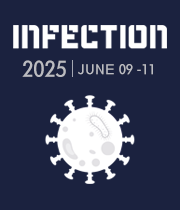Title : Assessment of knowledge, attitude and practice regarding human influenza (Flu): A case study of the urban population in hospital settings in Dodoma, Tanzania
Abstract:
Introduction: Influenza is a significant global public health threat whose epidemiology is well-documented in high-income countries, whereas data from the African continent, including Tanzania, is still limited. This study was conducted to assess the knowledge, attitude, and practice (KAP) regarding human influenza awareness and control among the urban population in hospital settings in Dodoma, Tanzania. A cross-sectional study, which involved 414 participants aged 15-55 years from three hospitals and two health centers, was conducted in Dodoma city from March to May, 2024. Data were collected through a structured questionnaire comprising demographic information and sections on knowledge, risk factors, attitude, and preventive practice(s) related to human influenza.
Results: The results indicated that the overall knowledge about human influenza was poor with 57.73% (n = 239) of respondents revealing awareness and 29.23% (n = 121) having very little information and/or awareness. Majority (85.5%; n = 354) recognized common symptoms of human influenza, whereas only 8.21% (n = 34) knew that vaccination could prevent the disease in human. In terms of attitude, 56.28% (n = 233) had recently experienced flu-like symptoms whereas 54% (n = 223) considered influenza a serious threat, but only 46.62% (n = 193) were willing to get vaccinated. Furthermore, the knowledge on practices related to influenza prevention were moderate with 55.31% (n = 229) having worn a face mask in public during flu season and over 80% (n =367) practiced hand hygiene.
Conclusion: The current study has shown that socio-demographic factors such as age, gender, marital status, education level, and employment status significantly influenced the KAP scores on specific variables and highlights their role on One Health approach for prevention and control of human influenza. The study highlights the need for targeted public health interventions to enhance awareness, attitudes, and practices towards influenza prevention and control in Dodoma, ultimately contributing to better one health outcomes in Tanzania and Africa.


